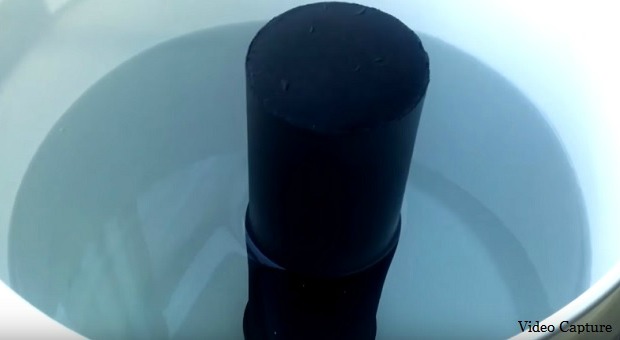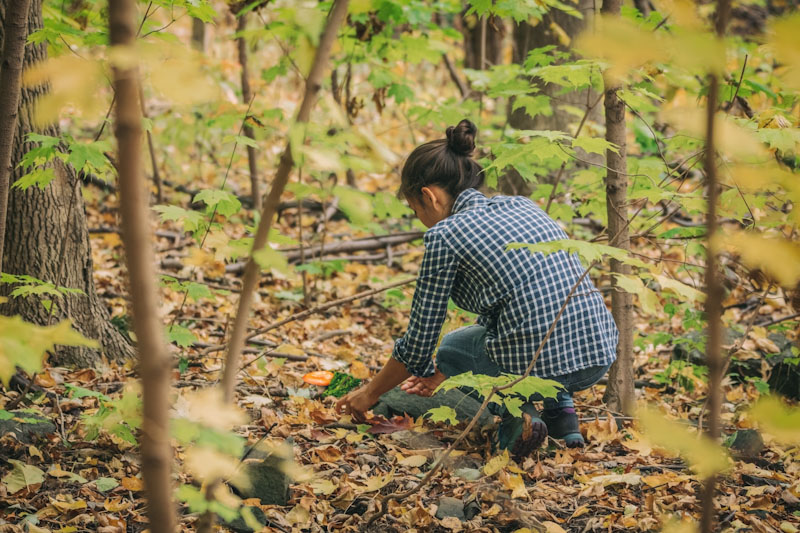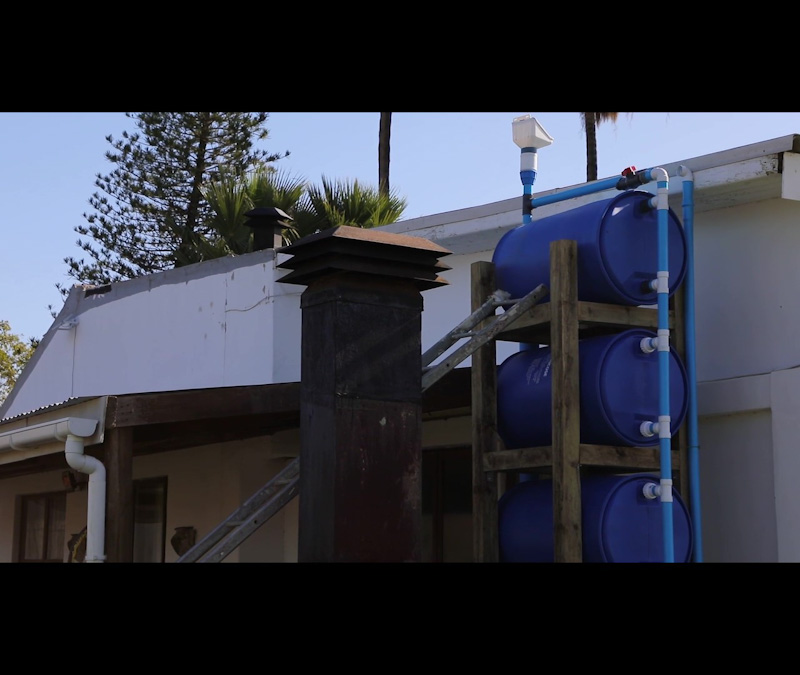Have you ever wondered which are the first items to disappear from the shelves in an emergency situation? If you did, I bet you’ve reached the same conclusion as yours truly: water, food, and guns, in no particular order.
Because water and food are essential survival items needed on a daily basis – never mind an emergency/SHTF situation – they’re among the first to make the “extinct” list at any grocery store or seven-eleven.
And while you can live for a couple of weeks sans food, the story with water is way more dramatic; you’ll croak in 2-3 days tops without water.
And what’s even worse, even if you manage to get some water from a – let’s say dubious – source, drinking impure water is almost as bad as not drinking at all. Besides the fact that you can get sick from bacteria/chemical pollutants, you may spread the disease you’ve contracted from unfiltered water to the members of your community, to your children etc. You got the idea.
You should also be aware of the fact that a community’s water supply is one of the first essential resources to be compromised/contaminated in a disaster.
This short preamble is aimed at emphasizing the fact that water filters are essential, must-have items in every respectable prepper’s paraphernalia. Some of the water filters on the market can be described as the rock star of water filters, one of those inventions which made prepping great again in North America!
This proven-to-work portable device provides clean fresh water 24/7!
About the Best Water Filters on the Market
For example, Berkey water filter systems are arguably the most popular brand among preppers and regular folk living in areas where water is not safe for drinking for various reasons: disaster sites, rural areas etc. Using one of these bad boys, you’ll be able to produce potable water from various sources like rain water or water from rivers, streams, lakes, or wherever.
They are so popular thanks to their high quality and their performance, and that’s due to their proprietary/state of the art cleanable micro permeable ceramic filter elements. This type of ceramic filter is long-lasting, highly effective, and if we’re talking about a gravity fed water filtering system, it requires no electricity. This type of water filter system will cost you around $250-$300 (depending on your location) and I am talking about the 2.5 gallon system. The Imperial Berkey, which is a 4.5 gallon system will easily cost you north of $350.
Now, for example, if you take a look at the Big Berkey, which in my neck of the woods will drain around $400, what you really have here is a couple of fancy-looking, stainless steel-made, big buckets, and that makes for an accurate description if there ever was one, at least in my opinion. I’m not saying that it’s not worth the price, but if you can’t afford to spend that kind of money, relax; there are ways around it.
What’s not so great about the the best water filters on the market is that it will cost you beaucop dollars. However, the good news is that you can save a lot of dough DIY-ing your own water filter in the same style. I am talking about saving approximately $200 here, which can be used for more useful things, like stockpiling food and ammo, or paying your bills.
How a Ceramic Walter Filter Works
This water filter works something like this: the top bucket contains the aforementioned state of the art ceramic filters. The water leaves the top bucket, gets filtered through the filters, and then it drains into the lower bucket. That’s all there is to it, really, simple and effective. All gravity-fed water filters work the same, regardless of the brand.
However, there’s another, less expensive way to get your own high-quality water filtering system by using just the Berkey filters and ditching the rest of the fancy-looking assembly.Yeah, you got that right: you’ll still use those top notch Berkey-made filters, but you’ll DIY the rest of the device, saving big bucks in the process.
How to DIY Your Own Expensive Water Filter on a Budget
Of course, since you’ll most likely be using plastic buckets for the DIY job, your homemade filter will lack the “wow” factor of a stainless steel-made one, but the water quality will be just the same, and that’s all that matters in final analysis. This is not a beauty contest.
What You Need
As per materials required, you’ll need a couple of 2- or 5-gallon food-grade plastic buckets (pay attention to the food grade part) with lids.
The buckets can be usually procured for free from restaurants or grocery stores. Stay away from pickle buckets if you can, as the smell is hard to wash out. If you can’t find free food-grade buckets, you can go for the out-of-pocket option and buy them new. They aren’t very expensive; 5-10 bucks. You can go for stainless steel containers (especially if you already have them) instead of plastic buckets, as stainless steel is more sanitary than plastic.
Besides the plastic/steel containers, the main component in your DIY water filtering system is the Berkey filter element. You’ll need two of those (they always come in pairs) and they’re easy to get on the Internet from places like Amazon.com.
And here comes the crux of the trick: a genuine Berkey replacement filter costs anywhere between 30% and 50% of the whole water filter; here’s where you save the big bucks. If this filter is too much for your budget, don’t worry; there are many other brands to choose from on Amazon which are cheaper. Just look for .01-.02 micron ceramic water filters and make sure you read the reviews, thus making sure you’re buying the good stuff.
Finally, you’ll need a spigot, and obviously you can get a Berkey system spigot or that kind used for water coolers from Amazon or Ebay.
As per tools, all that’s required for a basic DIY water filtering system is a power drill.
With the gear taken care of, you’ll have to drill some holes through the plastic buckets and then attach the water filtering elements and the spigots. It’s a pretty straight forward job and very simple.
Keep in mind to prime the filters prior to installing them into the pails; i.e. flush them with water at your kitchen sink. Don’t worry because there are instructions for doing this included in the package.
Another thing: after you’re finished with assembling your water filtering system, discard the first 2-3 batches of filtered water.That’s because you’ll want to flush out all the potential residue left inside the filters from the manufacturing process.
If you want to filter the fluoride from the water (regular black Berkey filters don’t do that) you’ll have to go the extra mile and buy a couple of optional fluoride filters. They’re easy to install, as they just screw on the bottom of the regular filters. There are attaching instructions in the bundle.
Black Berkey filters are good enough for providing you with 6000 gallons of crystal clear water before requiring replacement, meaning that they’re last you for at least a couple of years if not more. Fluoride filters must be renewed sooner: every 1000 gallons or so, approximately. If you’re going to use 5-gallon buckets for your DIY job, you’ll have to buy replacement filters for the Imperial Berkey system.
And here come the video tutorials.
The simplest of the bunch, this is a guy using 2 recycled plastic buckets and a screwdriver (not even a power tool!) for DIYing his own water filtering system. It’s a 15 minute job.
Video first seen on Steve Spence.
And here’s another, with the whole DIY job made by a nice lady.
Video first seen on namegatherer.
Finally, a higher-end job: a water purifier built using 16-quart stainless steel stockpots with lid. This job is a little bit more difficult, as it involves cutting through steel and all that, but it’s doable.
Video first seen on thebossoftheswamp.
I hope the article helped. If you have any question or comments, feel free to speak your mind in the dedicated section below.
Never worry about having safe water again.
Click the banner below for more!
This article has been written by Chris Black for Survivopedia.










Dana Jones | April 24, 2017
|
Question, I’m a 70 yr old female that’s slowly gathering survival things to stay in place if/when SHTF. I live close to a river. A lot of times the river is muddy. Plus homeless camp along it, about 40 miles up river from me.
Would this system work on this kind of water supply?
I have a couple of those filter straws also.
Mindy | June 6, 2021
|
We built one for our camping trips and we use the local stream/river/lake water. It works well but you will lower the life of the filters. The dirtier the water source the more frequently you will have to either clean your filters or replace them.
Debbi | April 24, 2017
|
Although I believe the Berkey system works very well as far as providing clean water, I’ve had a big problem with the filters. After I ordered my Berkey I also ordered a number of the Berkey filters to have on hand. As I used them, I discovered an inordinate number (in my opinion) of them were defective (i.e. when doing the mandatory initial testing to be sure they were working correctly, the red food dye would run through into the bottom container). Be assured I am an extremely careful person, so I feel VERY certain these filters did not fail because I mis-handled them in any way after I received them.
Since these filters cost around $100 for two, and three out of eight were bad, that was a big hit to the pocketbook. (Not to mention, should this happen during a time of emergency, it could cause serious problems with attaining potable water.) Because I’d ordered the filters when I originally purchased the Berkey, by the time I found the defective ones they were no longer within warranty. I am confident Berkey would have replaced them if they had been.
In fairness to Berkey, I ordered my Berkey years ago, so they may have fixed this problem by now. I haven’t ordered any new filters for the system since those original orders. So, as I said, perhaps they aren’t failing at such a high rate any longer. Also, if others haven’t had this problems with their filters, it’s possible I either received a defective bath or the carrier did something in transit which caused them to fail. I truly don’t know.
My purpose in writing this is simply to encourage everyone to be sure to test your filters (as out-lined in the instructions) before relying on them to provide you with pure, contaminant-free water. As I said, not putting down Berkey —
they’re a fine company; this is simply a caution to be sure to test your filters before using them. 🙂
Lidia branclino | April 24, 2017
|
The problem is not how to purify filthy water. The problem is where to find water after you run out of your reserves, it is Summer and you live in So California where it does not rain in Summer.
Mark | May 10, 2017
|
Thanks Chris, also worth noting that its obviously a good idea to have your own supply of clean water in rain barrels or water tanks.
www.silvadec.fr | June 28, 2018
|
Important Part Of Early